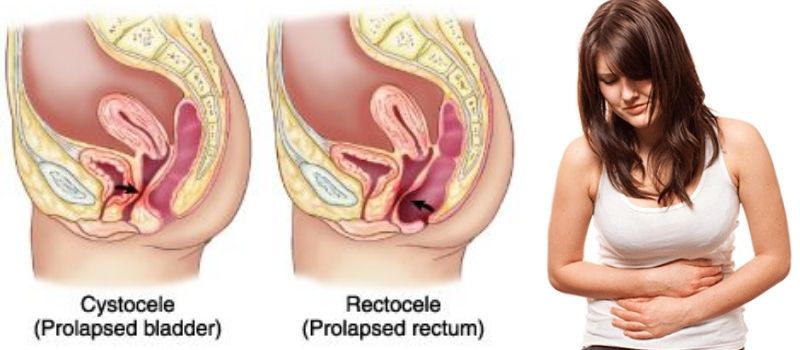Cystocele

Cystocele is a kind of cyst. When the membrane between a woman’s bladder and her vagina weakens, the bladder will drop into the vagina, causing cystocele. This condition will cause pain and difficulty emptying the bladder. Unwanted urinary leakage and insufficient bladder emptying can both be caused by a bladder that has fallen from its usual location.
When a woman coughs, sneezes, cries or turns in some manner that places pressure on the bladder, a fallen bladder expands the opening into the urethra, inducing urinary leakage.
According to the Best Urologist In Noida, Cystocele can be caused by a variety of factors.
A cystocele may develop as a result of muscle strain during childbirth. Such strains, such as hard lifting or repetitive straining during bowel movements, may cause the bladder to collapse.
Estrogen keeps the muscles around the vaginal opening tight. When women reach menopause or the end of their menstrual cycles, their bodies cease producing hormones, which causes the muscles around the vaginal and bladder to weaken.
Cystocele Symptoms
You may not find any signs or symptoms of anterior prolapse in moderate cases. When signs and symptoms appear, they can include the following:
- Fullness or discomfort in your pelvis and vaginal region
- When you strain, cough, buckle down or rise, you will feel more pain.
Since urinating, you get the impression that you haven’t fully drained your bladder.
Cystocele Risk Factor
Childbirth: Anterior prolapse is more likely in women who have given birth vaginally to one or more infants.
Hysterectomy is a surgical procedure that removes the uterus The removal of your uterus can result in a loss of pelvic floor support.
Genetics is a branch of science that deals with the study Some women are born with weaker connective tissues, increasing their risk of anterior prolapse.
If you are looking for cystocele Treatment, contact us

Get One Step Ahead Of Disease
Urological problems may be straightforward or complicated. However, regardless of its existence, it lowers the quality of life. To learn more about urological issues and to schedule an appointment with one of our Urology experts, contact us today.
